The Lost World of Socialists at Europe’s Margins: Imagining Utopia, 1870s - 1920s
Autor Professor Maria Todorovaen Limba Engleză Hardback – 2 sep 2020
| Toate formatele și edițiile | Preț | Express |
|---|---|---|
| Paperback (1) | 200.47 lei 6-8 săpt. | |
| Bloomsbury Publishing – 23 mar 2022 | 200.47 lei 6-8 săpt. | |
| Hardback (1) | 598.85 lei 6-8 săpt. | |
| Bloomsbury Publishing – 2 sep 2020 | 598.85 lei 6-8 săpt. |
Preț: 598.85 lei
Preț vechi: 860.45 lei
-30% Nou
Puncte Express: 898
Preț estimativ în valută:
114.79€ • 120.48$ • 94.68£
114.79€ • 120.48$ • 94.68£
Carte tipărită la comandă
Livrare economică 23 ianuarie-06 februarie 25
Preluare comenzi: 021 569.72.76
Specificații
ISBN-13: 9781350150331
ISBN-10: 1350150339
Pagini: 384
Ilustrații: 50 bw illus
Dimensiuni: 156 x 234 x 29 mm
Greutate: 0.7 kg
Editura: Bloomsbury Publishing
Colecția Bloomsbury Academic
Locul publicării:London, United Kingdom
ISBN-10: 1350150339
Pagini: 384
Ilustrații: 50 bw illus
Dimensiuni: 156 x 234 x 29 mm
Greutate: 0.7 kg
Editura: Bloomsbury Publishing
Colecția Bloomsbury Academic
Locul publicării:London, United Kingdom
Caracteristici
Uses around 3,500 biographies and roughly 4,000 documentary sources from diaries and personal correspondence to oral interviews and unpublished memoirs
Notă biografică
Maria Todorova is Gutgsell Professor of History Emerita at University of Illinois Urbana-Champaign, USA. She is the author of Imagining the Balkans (revised edition, 2009), which has been translated into 15 languages; Bones of Contention: The Living Archive of Vasil Levski and the Making of Bulgaria's National Hero (2009); Balkan Family Structure and the European Pattern: Demographic Developments in Ottoman Bulgaria (revised edition, 2006); and Scaling the Balkans: Essays on Eastern European Entanglements (2018). She led large scale international research projects resulting in several edited and co-edited volumes, including: Balkan Identities: Nation and Memory (2002); Remembering Communism: Genres of Representation (2010); Postcommunist Nostalgia (2010);and Remembering Communism: Private and Public Recollections of Lived Experiences in Southeastern Europe (2014). She has held awards from the Guggenheim Foundation, The Wissenschaftskolleg zu Berlin, the National Humanities Center, the Woodrow Wilson Center, and The Institute for Human Sciences, Vienna, and is the recipient of honorary degrees from the European University Institute in Italy, the University of Sofia, Bulgaria and Panteion University in Greece. In 2022, she received the Distinguished Contributions to Slavic, East European and Eurasian Studies Award and was elected member of the American Academy of Arts and Sciences.
Cuprins
PrefacePart I - Centers and Peripheries1. Accommodating Bulgarian Social Democracy within the Socialist International2. Provincial Cosmopolitans and Metropolitan NationalistsPart II - Generations3. The Prosopography of the Bulgarian Left4. Tales of Formation5. Socialist Women or Socialist WivesPart III - Structures of Feeling6. Dignity and Will: The Odyssey of Angelina Boneva7. Love and Internationalism: The Diary of Todor Tsekov8. Romanticism and Modernity: Koika Tineva and Nikola SakarovCodaBibliographyIndex
Recenzii
Todorova is particularly good at bringing to life specific individuals caught up in the Bulgarian socialist movement. The practical, romantic, and ideological world of these young idealists (who then, alas, grew old) opens up new insights into the history of Europe, socialism, and the Balkans.
A rich history of socialist militants from outside the movement's Western Europe core.
Specialists will be drawn to Todorova's uncanny ability to question established interpretations and offer fresh perspectives from the "periphery." Advanced students will profit as Todorova walks readers through the process of making sense of data, archival fragments, and varied theoretical approaches to connect personal dramas to national and continental developments.
This brilliant study by Maria Todorova makes crucial contributions both to the history of European socialism and the history of southeastern Europe, while also offering a pioneering investigation of the history of the sentiments and emotions in relation to political thought.
The Bulgarian socialist movement was one of the main intellectual transmitter belts for political, social and economic ideas between Russia, Western Europe and Germany--the stronghold of international socialism before World War I--on the one hand and post-Ottoman Bulgaria on the other. Maria Todorova brilliantly reconstructs a "lost world": The pan-European network of socialist theoreticians and activists like Blagoev and Kautsky, Kirkov and Trotsky, and many others. A must read for every Europeanist!
A triumphant vindication of the historian's view from the periphery. Using Bulgaria as the fulcrum for her analysis, Todorova challenges taken-for-granted approaches to early European socialism, while at the same time re-animating the ideas, experiences and emotions of men and women who shared the potent dream of 'a utopia of the future'.
A rich history of socialist militants from outside the movement's Western Europe core.
Specialists will be drawn to Todorova's uncanny ability to question established interpretations and offer fresh perspectives from the "periphery." Advanced students will profit as Todorova walks readers through the process of making sense of data, archival fragments, and varied theoretical approaches to connect personal dramas to national and continental developments.
This brilliant study by Maria Todorova makes crucial contributions both to the history of European socialism and the history of southeastern Europe, while also offering a pioneering investigation of the history of the sentiments and emotions in relation to political thought.
The Bulgarian socialist movement was one of the main intellectual transmitter belts for political, social and economic ideas between Russia, Western Europe and Germany--the stronghold of international socialism before World War I--on the one hand and post-Ottoman Bulgaria on the other. Maria Todorova brilliantly reconstructs a "lost world": The pan-European network of socialist theoreticians and activists like Blagoev and Kautsky, Kirkov and Trotsky, and many others. A must read for every Europeanist!
A triumphant vindication of the historian's view from the periphery. Using Bulgaria as the fulcrum for her analysis, Todorova challenges taken-for-granted approaches to early European socialism, while at the same time re-animating the ideas, experiences and emotions of men and women who shared the potent dream of 'a utopia of the future'.
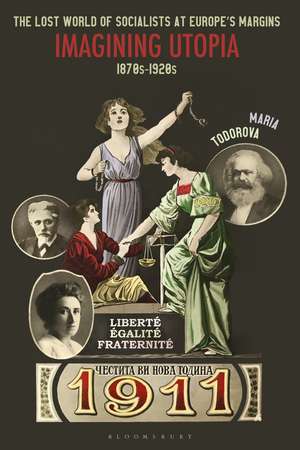

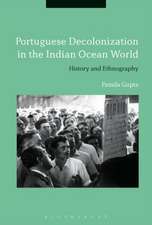


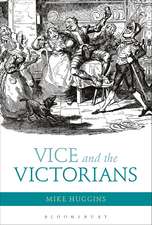

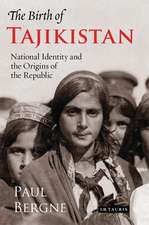


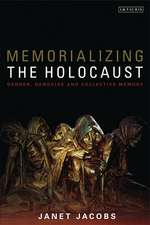



![Kenn-Nummern der Reichsanstalt für Luftschutz 1936-1944 [RL-Nummern]](https://i3.books-express.ro/bt/9783837015980/kenn-nummern-der-reichsanstalt-fuer-luftschutz-1936-1944-rl-nummern.jpg)